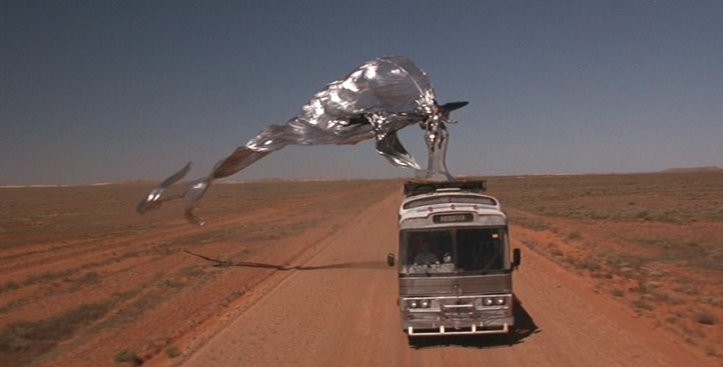
Welcome to Part One of my pandemic film review series! Ten months into spending all of my time in my apartment wearing sweatpants, I made a list of all my favorite movies, and started watching them in alphabetical order by title. You can find out far more than you wanted to know about this project in this intro post. This post contains reviews of the first ten movies I watched. The alphabetization was a little quirky when I started, because there’s an extra thing you have to do in Excel to make it alphabetize a text column correctly for some reason.
12 Angry Men (1957)
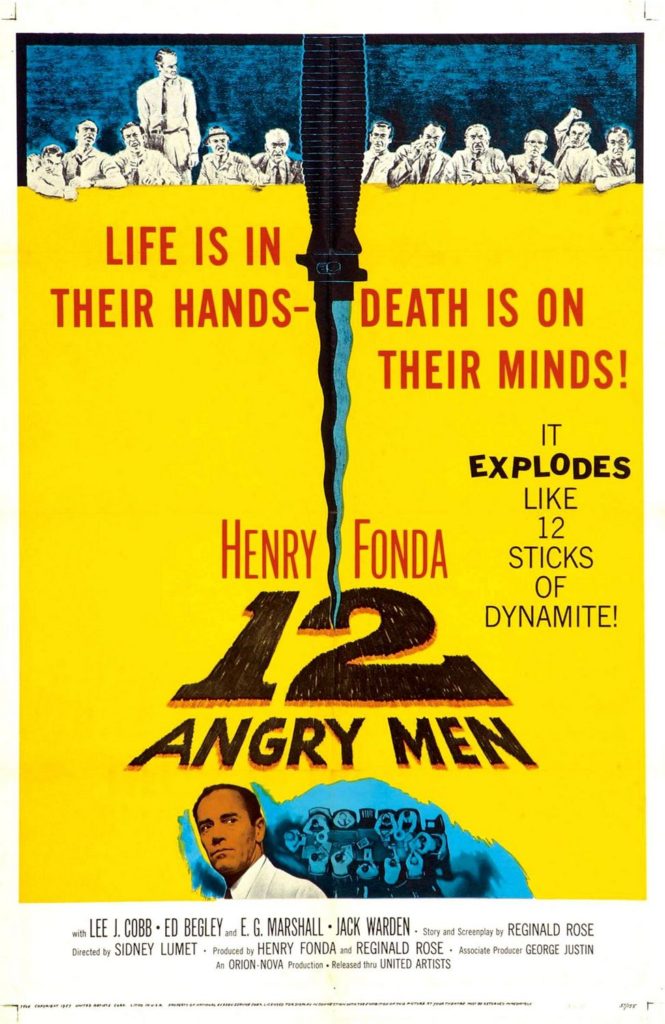
Basic Info: Directed by Sidney Lumet. Written by Reginald Rose. Starring Henry Fonda, Ed Begley, Lee J. Cobb, and Martin Balsam.
Single Sentence Summary: Twelve jurors pick apart the evidence and testimony surrounding a murder case, revealing much about themselves in the process.
Personal History with This Movie: I first saw this in middle school Social Studies class on a TV/VCR cart that had been wheeled into the classroom while a sub napped. I’ve seen stage adaptations and remakes, but it’s possible I haven’t watched this definitive version from beginning to end since I was 13, almost 30 years ago.
Reflections on Rewatch: 12 Angry Men is one of the sweatiest movies ever made. It’s a handbook for social justice, and it’s never stopped being relevant. People justify their bigotry and moral laziness the exact same way now as in 1957. Remakes with more diverse casts take away the discomfort of who’s not in the room: audiences then would have noticed the jury is all white men, and the man on trial is almost definitely not white. It’s simple and perfect. Also, 1950s Henry Fonda was a snack.
A Fish Called Wanda (1988)
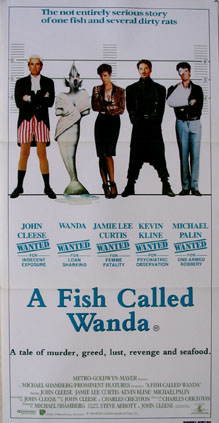
Basic Info: Directed by Charles Crichton. Written by Crichton and John Cleese. Starring Cleese, Kevin Kline, Jamie Lee Curtis, and Michael Palin.
Single Sentence Summary: Two con artists, an assassin, and a hapless lawyer get entangled in each other’s motives, deceptions, and lives in the aftermath of a bank heist.
Personal History with This Movie: First seen when I was 14 or 15, at the height of my Monty Python phase. I own this on VHS and watched it again several times, but it’s been about 20 years.
Reflections on Rewatch: A Fish Called Wanda is more uncomfortable to watch as time marches on, but that might be to its benefit. It’s one of the few cultural texts I can think of that deals with the line between funny and mean, and mostly lands on the side of making you complicit for laughing. Even the gay panic jokes have aged okay because of that. There are way too many dead pets. Kevin Kline’s Otto is one of the great film villains because his insecurity is sympathetic but still totally unappealing. It all looks extremely ’80s, to a degree that is sometimes distracting, but it’s still a wild ride that pays off.
Adaptation. (2002)
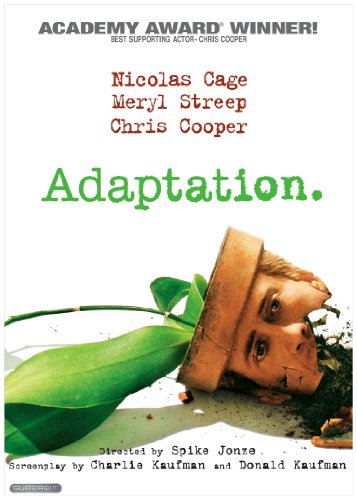
Basic Info: Directed by Spike Jonze. Written by Charlie Kaufman. Starring Nicolas Cage, Meryl Streep, Chris Cooper, and Tilda Swinton. Bonus cameos from Doug Jones and Supernatural‘s Jim Beaver.
Single Sentence Summary: Fact and fiction blur as a frustrated screenwriter tries to adapt an unadaptable book for the screen and his vision comes to life around him.
Personal History with This Movie: I saw this in the theater with my parents during a visit home while I was living in Japan, because it didn’t have much of a theatrical release there and I was (and still somewhat am) a Charlie Kaufman stan. I caught it again on cable a year or two later. It’s been about 15 years since I’ve seen it.
Reflections on Rewatch: I was nervous about seeing Adaptation. because it has largely faded from cultural consciousness and might have been too out there to hold up. It’s extraordinary, and it’s a shame we’ve all forgotten that. Every writer has a drawer (or a folder on Google Docs) full of “I can’t do this, I have nothing to say, I’m fat and no one will ever love me,” but Charlie Kaufman is a genius so his gets turned into a Meryl Streep film. She is having a ball in her supporting role, plus it’s one of Nicolas Cage’s best performances. It starts out being about impostor syndrome and how rich white guy problems are still problems even if you know others have it worse, and it expands into a full exploration of how filmmaking is not so much constrained by the limits of the medium as by the narrative conventions that we’ve collectively locked ourselves into. The movie spends too long making its last point in the final act, but other than that, it’s fantastic.
The Adventures of Priscilla, Queen of the Desert (1994)
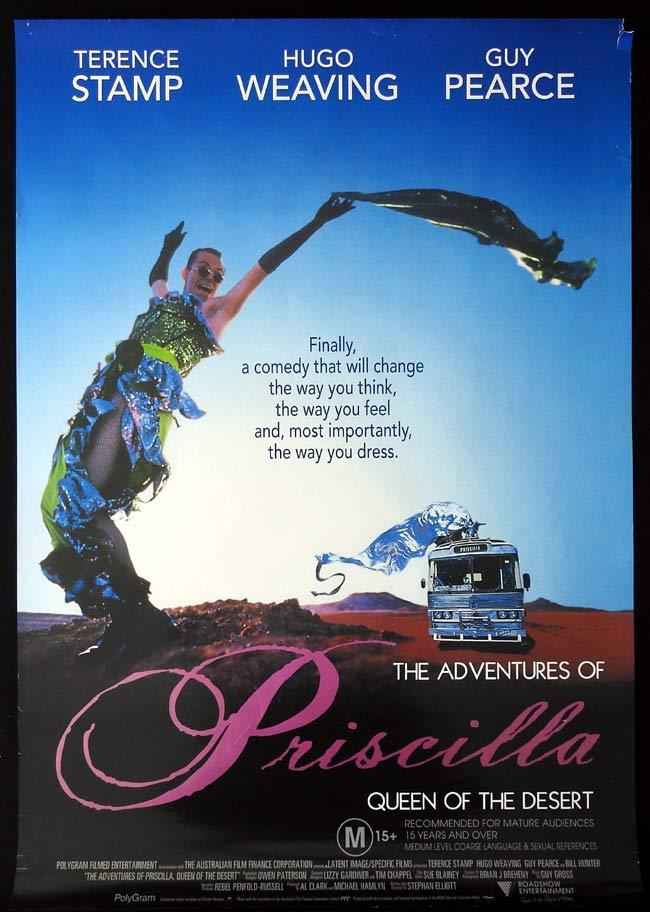
Basic Info: Directed and written by Stephan Elliott. Starring Hugo Weaving, Guy Pearce, and Terence Stamp.
Single Sentence Summary: Three drag queens journey across the Australian Outback in a bus, with misadventures, revelations, and romance along the way.
Personal History with This Movie: I rented this and watched it at home when I was about fifteen. It was one of the first times I’d seen bisexual or transgender characters on screen, and probably the first time I’d seen either as well-rounded, primary characters. It was a formative film for me in terms of my identity, not to mention my intricately self-choreographed karaoke rendition of “Mamma Mia.” I have it on DVD and have watched it many times, although it’s been about 10 years since I’ve watched it from start to finish.
Reflections on Rewatch: It’s hard to boil The Adventures of Priscilla, Queen of the Desert down to a paragraph, because this is the movie that taught me I exist as a queer person and there’s a culture for me to fit into. In particular, Mitzi (bisexual, married to a woman, and terrified of gay men’s biphobia) resonates with me now as he did then. A few things don’t hold up: Bob’s wife was a racist caricature in 1994 and comes off even worse now. Terence Stamp is great as Bernadette – one of the kindest and least vain portrayals of a trans character by a cis person – but a trans actress in the role would have been better, and the casting choice, necessary at the time, would not be acceptable now. The costumes are perfect not only because they’re creative and stunningly detailed, but because there’s a shabby realness about them. The backdrop of the Australian Outback is gorgeous; it’s a movie that could not be set anywhere else. I hope that somewhere, queer 15-year-olds are still discovering this movie and finding themselves in it.
Alien (1979)

Basic Info: Directed by Ridley Scott. Written by Dan O’Bannon and Ronald Shusett. Starring Sigourney Weaver, Tom Skerritt, John Hurt, Ian Holm, and scary puppets. Fans of character actors will recognize the rest of the crew: Yaphet Kotto, Veronica Cartwright, and Harry Dean Stanton.
Single Sentence Summary: A long-haul space freighter is redirected to investigate an alien planet, where they pick up deadly living cargo.
Personal History with This Movie: Part of the Great Binge while I was in high school. I tend to force people to watch this if they’ve never seen it. I once taught it to a college English class and scared the bejeezus out of a few students. It’s been maybe 10 years since I’ve last seen it.
Reflections on Rewatch: Alien is much less scary after the first watch, but it’s still fun to watch the clockwork run. It’s an early trope destroyer: the last three people standing are the two women and the Black guy. We forget now that Sigourney Weaver was not well known at the time, and the first half of the film fakes you out, making her look like a minor player rather than the Final Girl. The grubby-futuristic aesthetic has been copied so often, it’s easy to forget this is the source text. The practical effects are mostly still convincing. One of the great sci-fi films and one of the few horror films I truly love. Timeless.
All About Eve (1950)
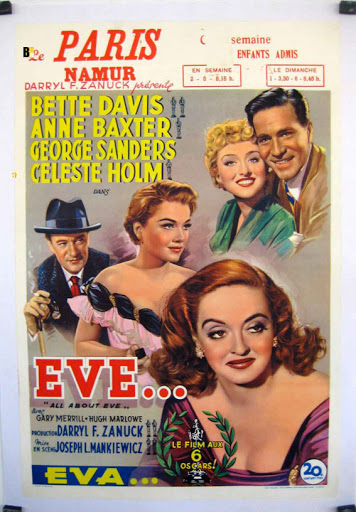
Basic Info: Directed and written by Joseph L. Mankiewicz. Starring Bette Davis, Anne Baxter, and some interchangeable men. Bonus Marilyn Monroe cameo.
Single Sentence Summary: An aging star of the theater welcomes a fan into her life, only to find that the aspiring starlet is conniving to steal her career and her fiancé.
Personal History with This Movie: I rented this from my college library and watched it in my dorm room with some friends. I’m not sure I’ve sat down with it since, so it’s been more than 20 years.
Reflections on Rewatch: All About Eve feels like an old movie, mostly because its pacing is… unrushed, but also because it uses scoring and physical space differently than films generally did even a decade later. It’s full of lines that I forgot are from this movie and can’t resist mouthing along with Bette Davis. Davis was great at walking the fine line between filling the screen and chewing the scenery, and you absolutely believe she’s a star. But this is more Anne Baxter’s movie than we remember, and Baxter is the better actress by 2020 standards, subtle and constantly simmering just below a boil, capable of conveying the emotions she’s faking and her real state of mind at the same time. If I were still in academia, I could get a good paper about this movie’s use of Shakespeare. It’s a great film to watch in your forties, because Margo’s speeches about aging hit hard.
All About My Mother (1999)
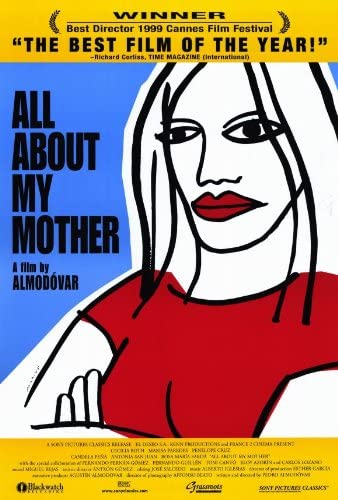
Basic Info: Directed and written by Pedro Almodóvar. Starring Cecilia Roth, Penélope Cruz, and Marisa Paredes. It’s in Spanish.
Single Sentence Summary: After a personal tragedy, a woman moves from Madrid to Spain, befriends an aging stage diva and a troubled nun, and reconnects with her past.
Personal History with This Movie: I saw this in the theater when I lived in England, told some friends how much I loved it, and saw it again with those friends. I haven’t seen it again since then, about 20 years ago.
Reflections on Rewatch: All About My Mother was fun to watch right after All About Eve because it cites All About Eve all over the place. It’s the earliest movie where I can remember seeing a trans actress in a major role. The plot is a bonkers Pedro Almódovar soap opera, but if you come in knowing that, it’s all just, “Penelope Cruz is a pregnant nun? Okay.” The plot twists still twist even when you know what a fake-out the first twenty minutes of the movie are. Visually, it’s stunning, all reds and golds and windows and geometric patterns. I think it holds up if you’re the kind of person who this movie is for.
All of Me (1984)
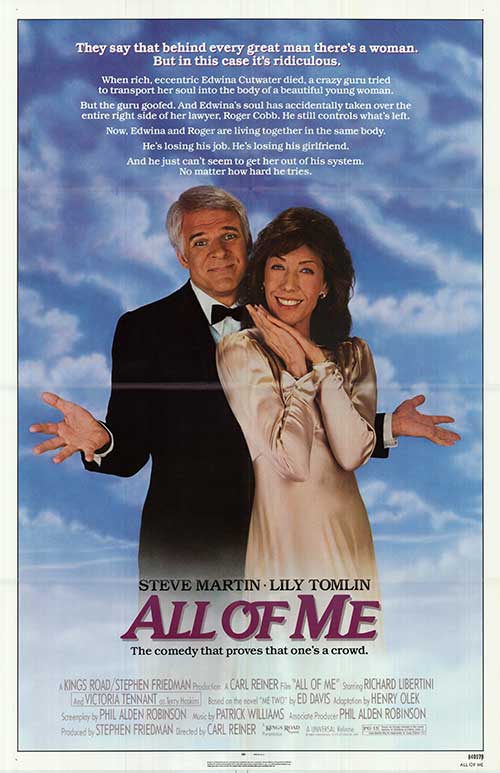
Basic Info: Directed by Carl Reiner. Written by Ed Davis, Henry Olek, and Phil Alden Robinson. Starring Steve Martin and Lily Tomlin.
Single Sentence Summary: A dying heiress scheme to transfer her consciousness into a servant’s body goes awry, and her put-upon lawyer finds himself possessed – but only the right side of his body.
Personal History with This Movie: My Nonnie (my grandfather’s second ex-wife; I was blessed with many grandmothers) rented this while I was visiting her when I was about 10 years old. I rented it again to watch with my parents and brother when I got home from my trip. I haven’t seen it since – about 30 years.
Reflections on Rewatch: With All of Me, I have my first entry that doesn’t hold up. The fatal flaw is that the comedy is way too broad, although Steve Martin saves a lot of the business by being a master of physical comedy. There are also a lot of sexist jokes that hinge on a male character acting in a stereotypically feminine way, some fridge logic bodily autonomy issues, and a white guy playing a South Asian character as a bundle of casually racist stereotypes. The premise is still delightful, and the funny parts are still very funny. But I cringed a lot.
Almost Famous (2000)
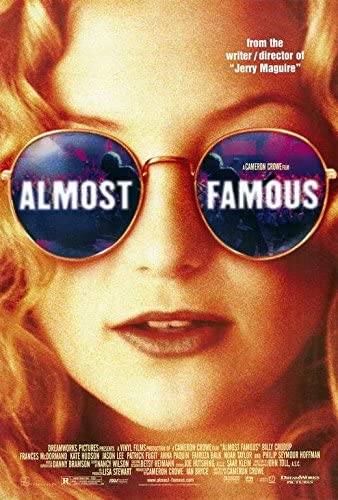
Basic Info: Directed and written by Cameron Crowe. Starring Billy Crudup, Patrick Fugit, Kate Hudson, Frances McDormand, Jason Lee, Zooey Deschanel, Anna Paquin, Fairuza Balk, and Philip Seymour Hoffman. If that weren’t enough, keep your eyes peeled for Jimmy Fallon, Rainn Wilson, Jay Baruchel, Eric Stonestreet, and a bunch of semi-famous comedians and old rock stars.
Single Sentence Summary: In the early 1970s, a precocious teenager is hired by Rolling Stone to accompany an up-and-coming rock band on tour and write a tell-all article about the experience.
Personal History with This Movie: I saw this in the theater with a group of friends when I was in college. I have this on DVD and watched it a lot when I was in my early twenties, but it’s been a good 15 years since I last saw it.
Reflections on Rewatch: Almost Famous is ostensibly set in the 70s, but everyone looks like it’s the year 2000. It’s also much more about turn-of-the-millennium anxiety about the death of rock and rock culture. All of that is fine, and it holds up as an artifact of the time when it was made, which is almost as far in our current past as its setting was when it was released. The performances are understated and human – Kate Hudson, famously, but also Billy Crudup and Jason Lee, own the terrific script – but Philip Seymour Hoffman and Frances McDormand, two of my favorite actors of the period, give some of the worst performances of their respective careers. The unsung heroes of this film are the sound editors and music coordinator; it’s the rare movie that sounds as luminous as it looks. You can’t watch this movie the same way you could 20 years ago, but the way it comes off now might be more interesting.
Bonus Track: When I posted my draft review of this on Facebook, several friends popped by to say this is their all-time favorite movie. Several also said they love Hoffman and McDormand’s performances, and how dare I. I stand by my impression that these two performances don’t hold up. They’re way too big. Hoffman plays Lester Bangs as a cartoon, and McDormand is a histrionic grump with no redeeming qualities. They stand out because everyone else is so restrained, and they’re chewing the celluloid. I understand what Crowe is doing here – these two characters are larger-than-life figures for William – but they’re so mannered that they feel like they’re in a different movie than everyone else.
The American President (1995)
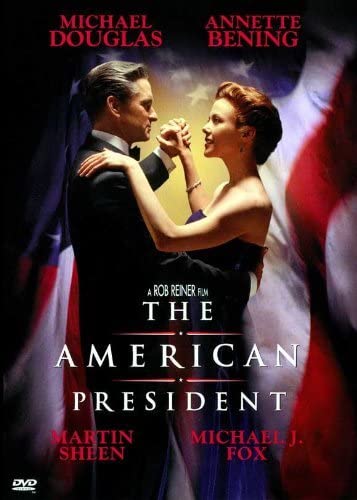
Basic Info: Directed by Rob Reiner. Written by Aaron Sorkin. Starring Michael Douglas, Annette Bening, Martin Sheen, Michael J. Fox, and Richard Dreyfuss. Many other Reiner and/or Sorkin repertory players appear, including Anna Deavere Smith, David Paymer, Joshua Malina, and John Mahoney.
Single Sentence Summary: An idealistic president juggles his upcoming reelection campaign, two important and heavily contested pieces of legislation, and a budding romance with a lobbyist that might interfere with his job.
Personal History with This Movie: I saw this in the theater. I want to say it was on a date that went nowhere, although it might have been with a friend (high school was a long time ago). I’ve caught it on TV a few times since, although it’s been at least 15 years since the last time that happened.
Reflections on Rewatch: Shut up and let me have my Clinton-era fairy tale of public service. I’m not sure this movie is philosophically correct, but I want it to be. I also want to live in a world where the President passed a meaningful green emissions bill in 1996. This movie is a rough draft for The West Wing, but it’s better in some ways – less sexist and not nearly so far up its own ass. Every performance is great, even the small roles. I still love this.
I’ll add a link to the next post in the series when it’s up!
